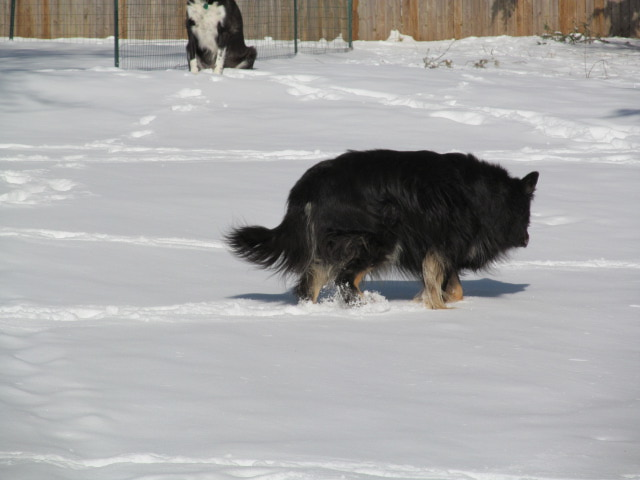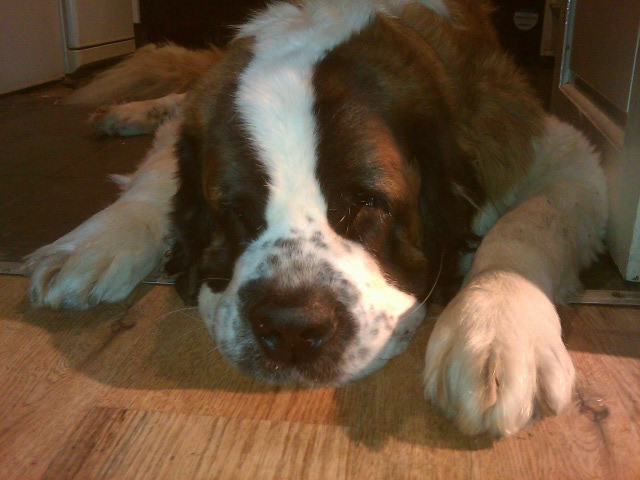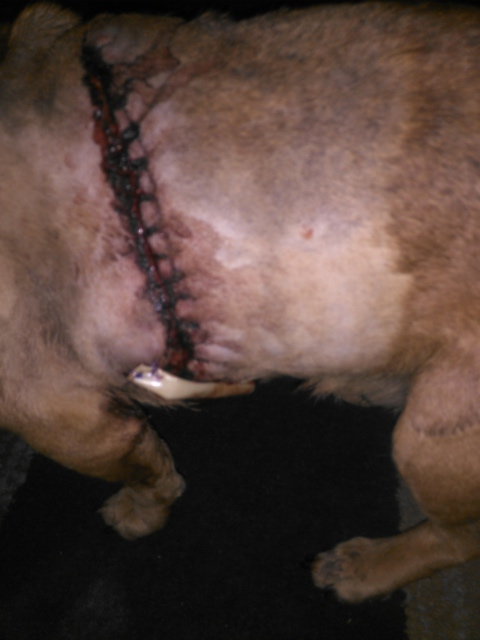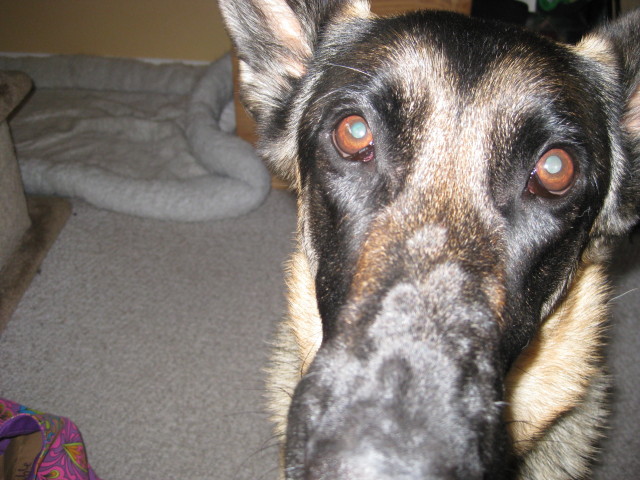QuestionHello. I have a schnauzer I adopted a couple of years ago. He is quite high strung, nervous,but lovable. He is 5 years old and was my mothers dog. She raised him as a child and when I got him he was fearful of everything and had a compulsive licking problem. We have managed to turn him back into a dog for most things, thankfully. About 6 months ago he started peeing in the house when I am coming home. He pees at the front landing and has even lifted his leg to pee in the living room when he hears the garage door opening. Please note my partner has also been there watching him do this. When he catches him he yells at him and he immediately stops although he is still very excited. It's almost as if he forgets himself. Really need help here.. thank you so much.
Answer
Hi Marianne,
Because of your dog's high strung, nervous nature he may be having some submissive urination when he's anticipating somebody's homecoming. This is not a house breaking or discipline issue. It's a reflexive action that he has no control over. Dogs have several behaviors designed to reduce violence between them. When challenged, a submissive dog must display some or all of these behaviors to display its lower status and to prevent an attack. Submissive urination is most commonly offered in this type of greeting. By wetting, the dog is merely acknowledging the other dog's superiority.
The approach to dog training for submissive urination problems is a two-fold approach. Firstly you need to reduce the number of situations that cause your pup to react in this way, and secondly you need to resist the urge to "correct" the behavior and ignore it instead. When you are dealing with a dog that for whatever reason feels submissive, scolding and punishment do NOT work. They only make the dog feel more powerless and less in control. So your partner should stop reprimanding your dog.
Until you can get a handle on this problem, confine your dog to a room with an easy-clean floor by using a baby-gate at the door. When you come home, don't greet your dog right away, instead putter around for a few minutes without making eye contact or talking to him. Then enter the room he's in and crouch down beside him and say 'hello' calmly and quietly, petting his under his chin. Direct eye contact, reaching over his head to pet him, or standing directly over him are all potentially dominant actions in the canine world, and he will likely see them this way. You should avoid actions that he may perceive as threatening.
For a dog with submissive urination problems, a heightened emotional environment of any kind (whether from excitement, anger, tension etc.) is likely to cause her to urinate. Keeping the overall "tone'" in your home low-key and relaxed can go a long way towards reducing the severity and frequency of the problem. Work hard at interacting with your dog in a quiet, non-threatening way and bear in mind that his perception of your actions may be quite different from your intent.
Many dogs that display submissive urination are suffering from a lack of confidence, so building your dog's confidence is an important part of this. For this reason, obedience classes are often suggested to remedy this. Classes are an excellent confidence booster for your dog. It also can open your eyes to the ways that you can unconsciously reinforce a negative behavior.
You can read more about dealing with submissive urination here:
http://www.articlesbase.com/pets-articles/how-to-cure-your-dogs-submissive-urina...
http://www.dogs-4life.com/8-ways-to-stop-submissive-urination-in-dogs.html
If you find that your dog's problem can't be remedied by changing your interactive behaviors, there may be other options which can be discussed with your veterinarian. For example, anti-anxiety medications, such as Prozac can sometimes be given to very excitable, anxious, sensitive dogs to calm them down (without sedating them.)
Best of luck,
Patti

 Old dog, old owner, grooming issues
Question
Jessis
I have a 13-yr-old German shephe
Old dog, old owner, grooming issues
Question
Jessis
I have a 13-yr-old German shephe
 st bernard archy.
QuestionQUESTION: I have a four year old st bernard. I
st bernard archy.
QuestionQUESTION: I have a four year old st bernard. I
 tumor on my dog
Question
stitched up second tim tumor
My d
tumor on my dog
Question
stitched up second tim tumor
My d
 bumps on dogs nose
Question
bumps on nose
My dog has bumps on her nose..Sh
bumps on dogs nose
Question
bumps on nose
My dog has bumps on her nose..Sh
 Diarrhea in Nursing Bitches
QuestionAtrix & Pup
QUESTION: My Champion Mi
Diarrhea in Nursing Bitches
QuestionAtrix & Pup
QUESTION: My Champion Mi